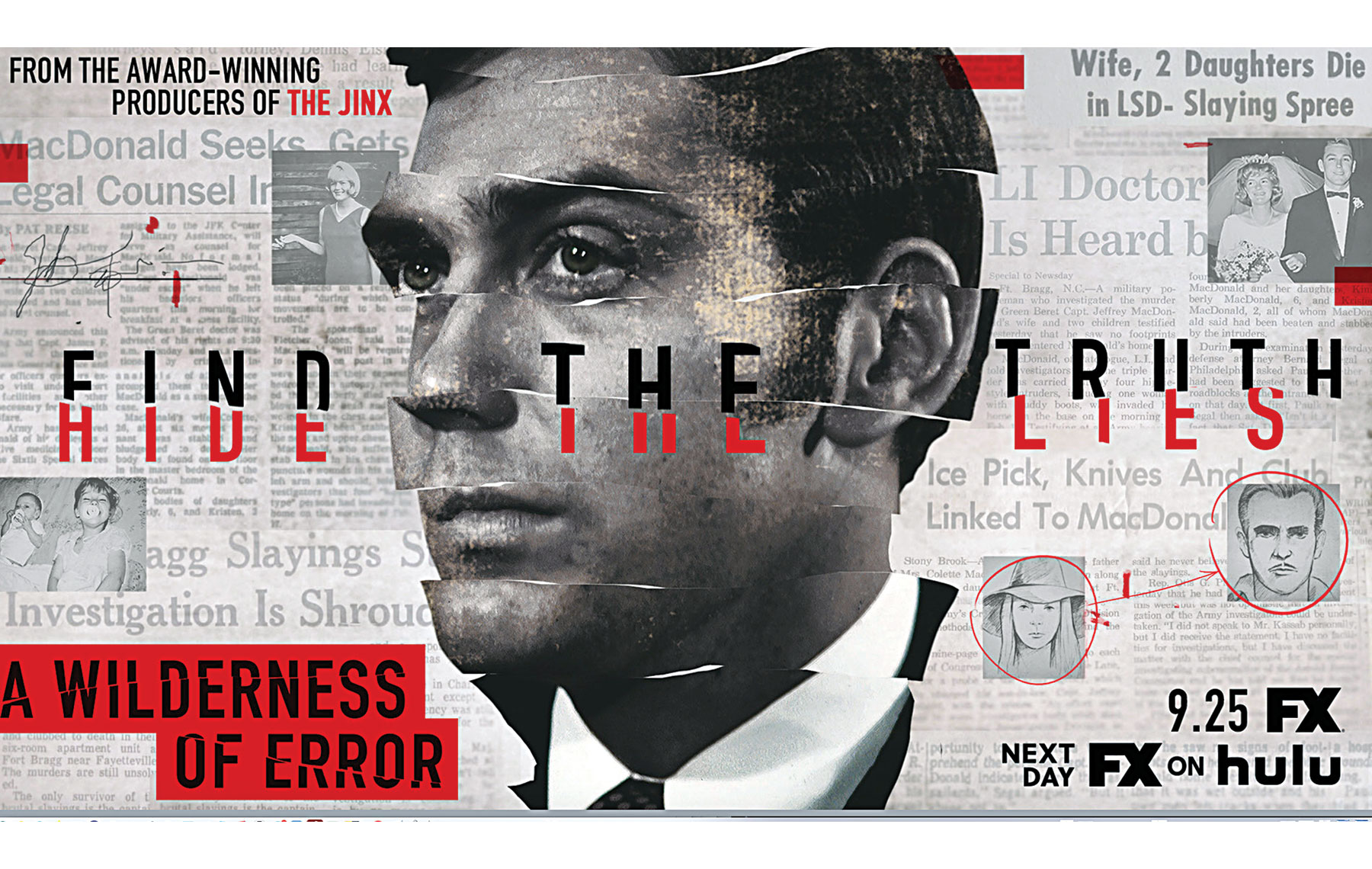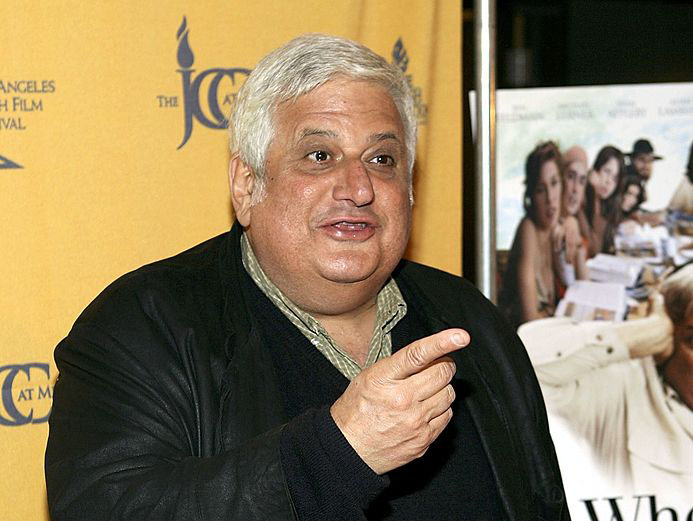
Author and documentary filmmaker Errol Morris has turned his lens on the famous (Stephen Hawking in “A Brief History of Time,” Robert S. McNamara in the Oscar-winning “The Fog of War”) and the obscure (the motley crew in “Fast, Cheap & Out of Control”). But he’s always been fascinated by the notorious, too, as exemplified by his acclaimed 1988 death row documentary, “The Thin Blue Line,” and his 2012 bestselling book, “A Wilderness of Error,” about the infamous Jeffrey MacDonald murder case.
In 1979, MacDonald, an Army surgeon, was convicted of brutally murdering his pregnant wife and two daughters in 1970. He is serving a life sentence in prison. Morris revisits the story in the five-part FX series of the same name based on his book, written and directed by Marc Smerling (“Capturing the Friedmans,” Emmy winner for “The Jinx: The Life and Deaths of Robert Durst”).
As recounted in journalist Joe McGinniss’ 1983 book and the subsequent miniseries “Fatal Vision,” MacDonald was convicted of the murders, but was he guilty? Conflicting testimonies and evidence make for a tangled yet fascinating web. Morris and Smerling shared their insights in a virtual press conference for the docuseries, which will air its first three episodes on Sept. 25 and the final two the following week.
“One of the fascinating things about this case is that it has so many, many layers … [and] we arrive at conclusions and those conclusions may, in fact, be hopelessly biased, may avoid the truth,” Morris said. “This is a story about process, about what happened to Jeffrey MacDonald in all of these intervening years and all of this litigation that has gone on for half a century. One of the things that makes this an extraordinary story [is] evidence that almost seems to prove a case but never quite does. It’s an extraordinary exercise in ambiguity. It’s a strange case with very strange characters. It’s a really fascinating story to me.”
“We all know in our heart of hearts that real cases should have answers. If we think hard enough, if we investigate long enough, we should be able to come to some definitive conclusion. This case hasn’t taught me that there is no conclusion to be arrived at, but it certainly has taught me how difficult it can be to arrive at a conclusion.” — Errol Morris
“It’s the most popularized and probably legendary true crime out there. So many books and so many things have been done about it,” Smerling said. He enlisted Morris as an onscreen participant, to take “another deep dive into it … [and] go back to the very beginning, look at the original documents, look at the original evidence, and then try to figure it out, [see if] we could find the truth.
“When you slow this story down and you look at it over a series, you start to see things that are in plain sight. We were constantly running into documents, audiotapes,” Smerling continued. “There’s a lot of found footage in this that was extraordinary, that we had seen and heard in little pieces but had never actually heard in its entirety.”
The case was full of conflicting evidence, some that was lost, corrupted, misinterpreted or manipulated, “and the prosecution went to extraordinary lengths to manipulate evidence and to obtain a murder conviction,” Morris said. Characters who emphatically believe in MacDonald’s guilt, innocence and then change their minds “make you question the whole nature of how we look at crime and consider evidence,” he added. “To me, that is the deepest and most important message in this story.”
Neither Morris nor Smerling would definitively pronounce MacDonald innocent or guilty. “I think we did a lot of work to present evidence and tell the story, and at the end of the day, I think it’s going to be up to the people watching the series and doing their own research to decide for themselves on guilt and innocence,” Smerling said. “One of the confounding things about this case is that it’s a prism. You look through it one way and you see evidence in a certain light, and you look through it another way and now the evidence is in another light. And there’s this person or multiple people out there who claim to have been in the house the night of the murders and to have witnessed or participated in them, so it’s an incredibly difficult journey to come to some sort of solid conclusion on.”
Morris concurred. “I’m not left with a feeling of certainty about anything with this case,” he said. “We all know in our heart of hearts that real cases should have answers. If we think hard enough, if we investigate long enough, we should be able to come to some definitive conclusion. This case hasn’t taught me that there is no conclusion to be arrived at, but it certainly has taught me how difficult it can be to arrive at a conclusion.”
In conjunction with “A Wilderness of Error” (the title of which comes from an Edgar Allan Poe short story), Smerling will take a closer look into the MacDonald case and Joe McGinniss’ exploration of it in the companion podcast “Morally (In)Defensible.”
“A Wilderness of Error” premieres on FX at 8 p.m. Sept. 25 and the following day on Hulu.






















 More news and opinions than at a Shabbat dinner, right in your inbox.
More news and opinions than at a Shabbat dinner, right in your inbox.